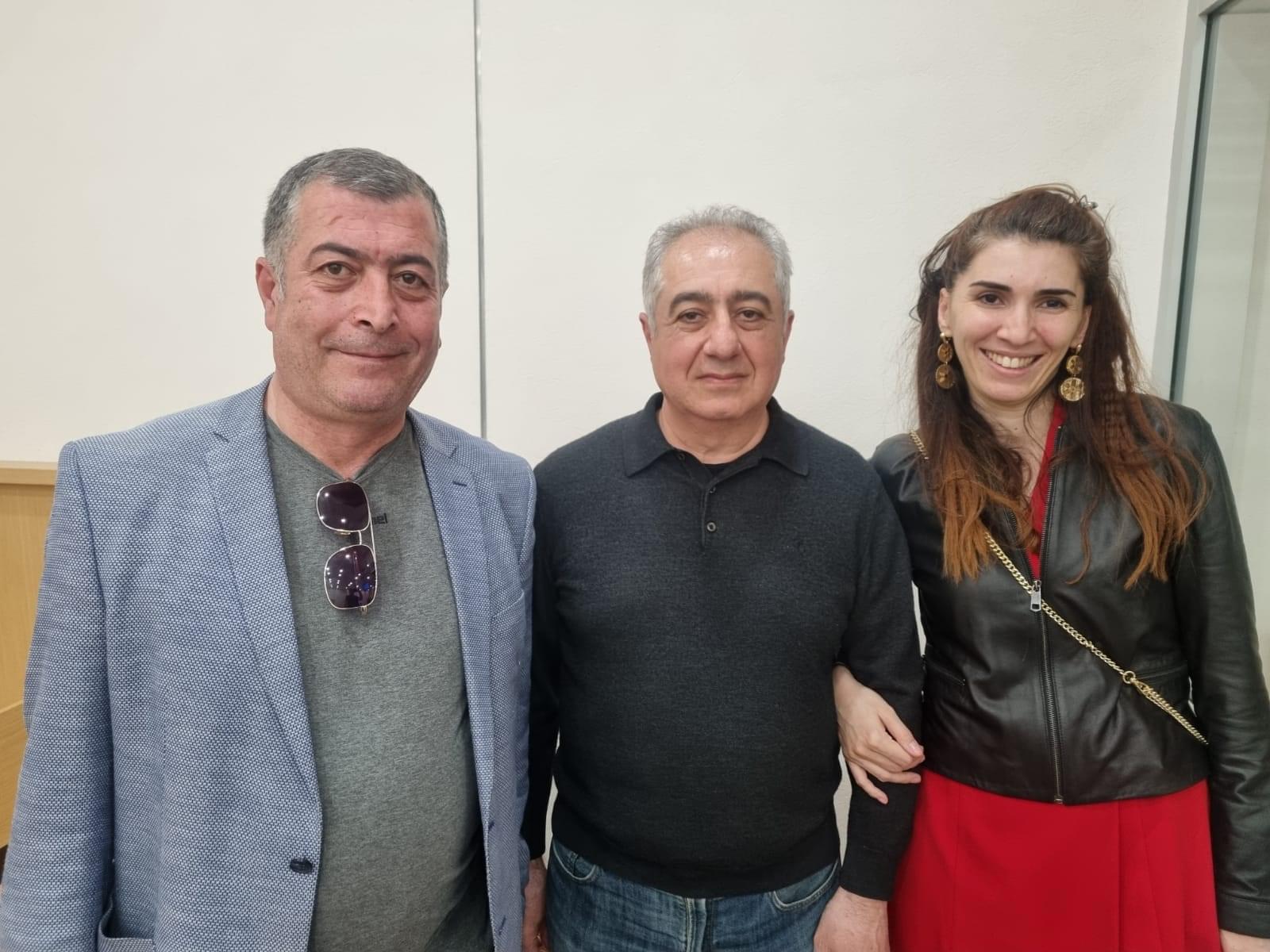Son fears father could die after year detained in Azerbaijan as political prisoner
It is a year since London School of Economics professor Gubad Ibadoghlu was unlawfully imprisoned in Azerbaijan. Tom Watling speaks to his son, 24-year-old Ibad


Your support helps us to tell the story
From reproductive rights to climate change to Big Tech, The Independent is on the ground when the story is developing. Whether it's investigating the financials of Elon Musk's pro-Trump PAC or producing our latest documentary, 'The A Word', which shines a light on the American women fighting for reproductive rights, we know how important it is to parse out the facts from the messaging.
At such a critical moment in US history, we need reporters on the ground. Your donation allows us to keep sending journalists to speak to both sides of the story.
The Independent is trusted by Americans across the entire political spectrum. And unlike many other quality news outlets, we choose not to lock Americans out of our reporting and analysis with paywalls. We believe quality journalism should be available to everyone, paid for by those who can afford it.
Your support makes all the difference.Gubad Ibadoghlu was driving home with his wife in northern Baku, Azerbaijan, when several cars rammed into them.
The senior fellow at the London School of Economics (LSE) was in town to visit his ailing mother, who could no longer walk.
Two dozen plainclothes officers rushed out of the vehicles and beat the couple, who had been chased out of the country six years earlier by an administration that Professor Gubad’s supporters say was angered by his anti-corruption efforts.
The officers dragged the couple screaming into the back of the unmarked cars, slammed the doors and drove them to a detention centre.
“That is how Azerbaijani politics works,” claims the couple’s 24-year-old son, Ibad Byaramov. “If you are in the opposition, there is a very high chance that you will get imprisoned.”
The beating, exactly a year ago, was just the beginning of the troubles for Prof Gubad and wife, Irada Bayramova. He is now facing 17 years imprisonment. His pre-trial detention has been extended on multiple occasions, the latest until at least 20 August. He spent nine months in prison and refused proper access to his lawyers, to the outside and, crucially, to healthcare, before being put under house arrest, where he is safer but still unable to receive the treatment he needs for diabetes and a heart aneurysm.
Ibad says the prison authorities falsified his father’s health records while in detention, playing down the extent of the aneurysm, and have since denied him access to hospitals, leaving him in grave danger.
“It is my professional opinion that Prof Gubad has a significant aortic root aneurysm, which appears to have grown rapidly,” wrote cardiologist James Bengston, after being asked to review two of the professor’s echocardiography reports in late April, performed upon his departure from prison.
“This poses an imminent danger to his life.”

Irada was released but has suffered from the aftershock of the beating and the stress of her husband’s detention and mistreatment. She has suffered brain damage and a fortnight ago was put on heavy pain medication after collapsing.
The extent of damage caused by these detentions notwithstanding, the reasons for his arrest are fraudulent, says Ibad.
Prof Gubad risked returning to Azerbaijan last summer knowing the danger it posed. Within weeks of arriving, he was being followed.
Earlier, a state-sponsored media outlet had claimed he was guilty of money counterfeiting and had connections to Islamic terrorism – claims he and his family have always refuted.
The authorities then denied him the right to leave, again without explanation.
The LSE fellow texted one of his cousins to say he felt like “a fish in a bowl”, constantly monitored but trapped.
And then the authorities rammed into his car, threw him into prison and, according to the European parliament, subjected him to “inhumane treatment”.
Ibad is campaigning for his release, urging the UK government, which has a significant trade relationship with Azerbaijan, around £1.4bn a year, to step in to help broker the release of his father.
He is also asking for pressure to be put on BP, the privately owned oil company headquartered in London, which is currently the largest foreign investor in Azerbaijan.
Prof Gubad is not a British passport holder but he has a residence permit in the UK.
“We are asking them to take this case seriously because he has such an important connection to the UK,” says Ibad. “He is someone who is teaching British students.”
Ibad says the case of Alexei Navalny – the Putin critic who died in a Russian prison camp – is both encouraging in terms of the British response for a non-UK citizen and of concern because of Navalny’s eventual death.
As foreign secretary, David Cameron last year sanctioned several prison officials viewed as responsible for Navalny’s death, while the UK government was vocal about the importance of the opposition leader’s cause.
“What is happening in Azerbaijan is not that different to what is happening in Russia,” says Ibad. “People are being imprisoned just for raising their voices.
“Look at how the British responded to the case of Alexei Navalny. I very much appreciated that but Azerbaijan should not be singled out just because the UK has economic ties with them. Is the threshold for helping political prisoners really that there must be a war?
“A professor who worked in the UK is being kept in a life-and-death situation where he could collapse at any moment. If there were thresholds that needed to be reached in order to warrant speaking up, those thresholds were met a long time ago.”
Ibad says the future looks “bleak” but that it is trending in the right direction. It is some small relief that his father was moved to house arrest.
He says Sir Keir Starmer, the Labour leader and newly appointed prime minister, is aware of his father’s case, while foreign secretary David Lammy appears to have picked up the mantle of Lord Cameron’s attention to political prisoners.
A Foreign Office spokesperson said: “One year on from Dr Ibadoghlu’s arrest, the UK has consistently advocated for his access to appropriate medical care and right to a fair legal process.
“While we welcome his release to house arrest, his health is still of concern and we would welcome any decision by the Azerbaijani authorities which would see him able to travel abroad to receive appropriate medical care, as required.
“The UK continues to call on the Azerbaijani Government to protect the freedoms and human rights of its citizens, including Dr Ibadoghlu.”
The Independent has contacted the Azerbaijan embassy and BP for comment.
Join our commenting forum
Join thought-provoking conversations, follow other Independent readers and see their replies
Comments